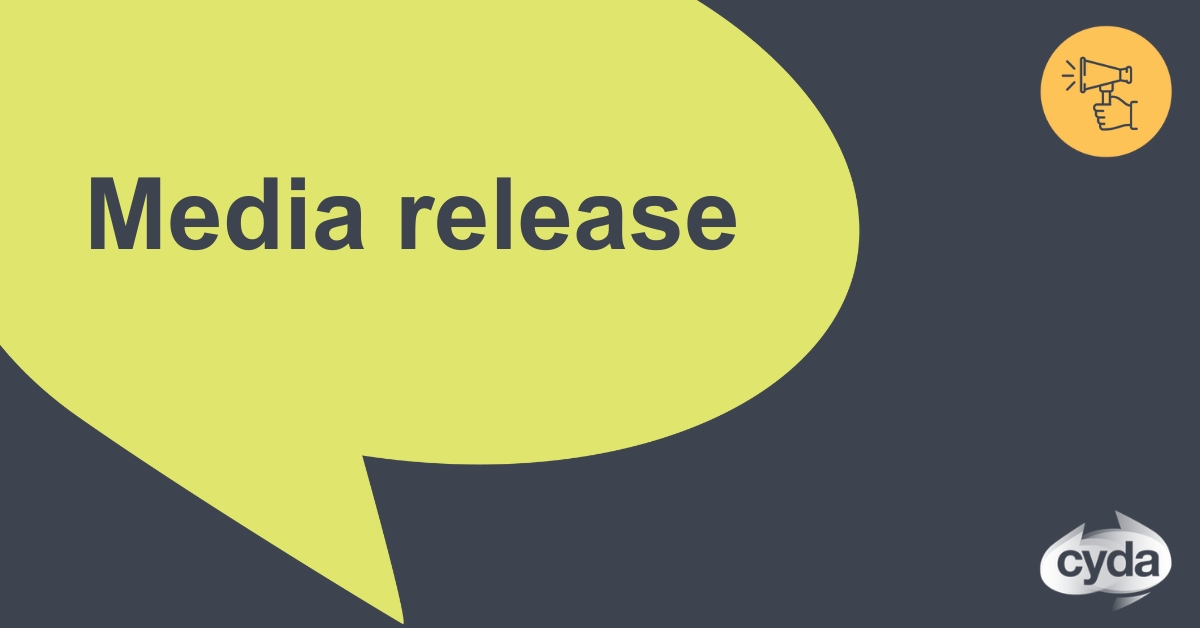The Australian Government’s 2024-25 budget provides welcome cost-of-living relief but fails to implement key reforms for children and young people with disability.
Children and Young People with Disability Australia (CYDA) is pleased to see measures that take the weight off young Australians in general.
This includes a 10% increase to Commonwealth Rent Assistance, student debt relief, and a minor JobSeeker payment increase for people unable to work more than 14 hours a week.
But the budget, delivered by Treasurer Jim Chalmers last night, ignores clear and repeated calls for systemic changes that would drastically improve the lives of children and young people with disability, and their families.
Many of these – such as a push towards a more inclusive education system – were outlined in the recommendations of last year’s NDIS Review and Disability Royal Commission, which the government has been slow to address.
“This budget does little to alleviate the hardships and systemic barriers children and young people with disability face today,” said CYDA CEO Skye Kakoschke-Moore.
“While financial relief is welcome – especially as the cost-of-living for people with disability is on average 63% higher than for those without disability – there are many issues of importance this budget seems to miss.
“Being barred from the education and employment opportunities available to their non-disabled peers, for example, worsens the strain on disabled young people already struggling under high disability-related costs for medical care, assistive devices, and accessible housing.”
Employment measures in the budget, like a new disability employment program, put the focus on getting disabled people ‘ready’ for employment rather than addressing ongoing systemic discrimination and improving workplace laws and practices.
No increase in the Disability Support Pension (DSP), which CYDA called for in its submission to the Select Committee on the Cost of Living, means there is little to support disabled young people who cannot work.
That’s despite a 2020 ACOSS report finding that 41% of DSP recipients were living below the poverty line.
CYDA outlined other measures the government needed to include in its recent pre-budget submission.
Among these is reform of the NDIS.
Disability advocates have long called for clarity around the future of the life-changing Scheme, and a guarantee that no child be removed from it until and unless adequate foundational supports are put in place.
“We are happy to see an investment of $130m in NDIS design and consultation in this budget but note it is not yet clear how this funding will be allocated,” Kakoschke-Moore said.
“A significant portion must be used to work with children and young people with disability, who stand to lose the most if eligibility and access to the Scheme changes without proper safeguards.”
“A $20m allocation for consultation and design of reforms to help people with disability navigate services is welcome, but children and young people with disability need to be included in this process.”
Furthermore, while CYDA supports investment in a much-needed wage increase for early childhood workers, it highlights the overall early childhood education and care budget remains largely unchanged.
Additional funding for the sector is needed to boost training for educators to better support the inclusion needs of children with disability.
CYDA also backs the allocation of $98.4m to the Inclusion Support Program.
It will soon provide a more detailed breakdown of the budget and what it means for the 650,000 children and young people with disability in Australia.
For media enquiries, please contact:
David Kavanagh – Communications and Media Advisor, CYDA
Email: [email protected]
Phone: 0426 815 627


